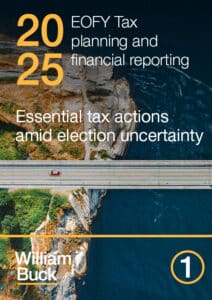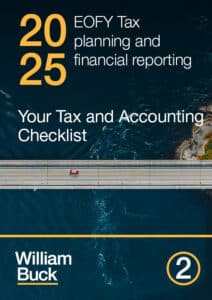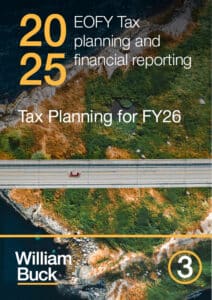Unlocking tax and reporting insights for year end success
Three updates. Timely insights. One goal: helping you make informed decisions at the right time.
This year, we’re delivering our EOFY tax planning and financial reporting guides in three parts, designed to reflect the uncertainty surrounding the federal election and upcoming budget. Each guide offers expert advice tailored to a specific stage of the planning cycle, helping you stay prepared and forward-focused in a changing environment.
Expert guidance to help you prepare, adapt and plan ahead

Early planning guidance
Essential tax actions amid election uncertainty
While we await clarity in the lead up to the Federal election, it’s important to focus on key areas that could impact your tax planning now. To help set you and your business up for success, we’ve compiled a list of what we know and don’t yet know, including impending changes, ATO focus areas and critical areas for you to consider.

Steps to maximise your position
EOFY Ready: Your tax and accounting checklist
Launching after the Federal election in late May, this checklist offers practical guidance to support your year-end planning. It’s designed to help you make informed decisions, maximise your tax position and move forward with confidence.

Think ahead
Tax planning for FY26
This forward-looking resource will support long-term planning beyond EOFY 2025, outlining early considerations for the 2026 financial year and helping you stay one step ahead and strategically prepared.
Supporting your planning at every stage
Whether you’re reviewing your current position, preparing for year-end, or thinking ahead to FY26, each guide is designed to provide timely, expert insights. With a focus on clarity and confidence, our guidance helps you respond to today while planning for tomorrow.
Looking for more? Our latest thoughts on end of financial year

































